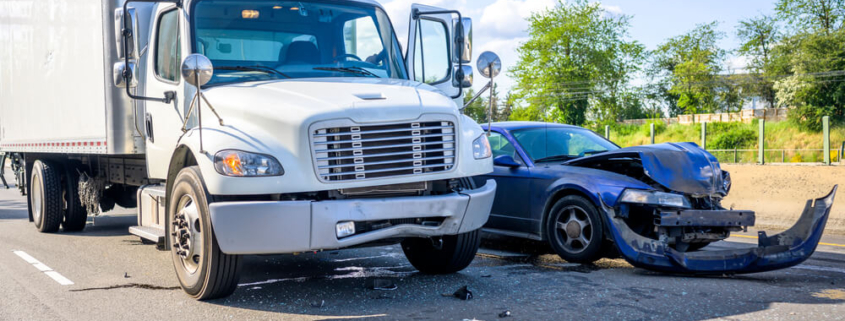Beyond the Big Rig: Often-Overlooked Culprits in Trucking Accidents
When a truck accident occurs, people often point their fingers at the truck driver or the driver of the smaller vehicle. In truth, it’s often not quite that cut-and-dry. There are many factors that can lead to a truck accident, and it’s important to get the full story before making any judgments. Keep reading to learn more about some commonly overlooked causes of truck collisions in Charleston.
Have you been hurt in a truck accident? It’s time to find out how Bailey Javins & Carter can help you. Call us at 800-497-0234 to set up a consultation with our team now.
Improper or Inadequate Training
One factor that people rarely think about is the role of training. Driving a truck is far more complicated than driving a much smaller passenger vehicle, and in an ideal world, truck drivers would get as much training as they needed to feel completely comfortable driving on their own.
But in the real world, there is a driver shortage and companies want to get new drivers onto their own routes as quickly as possible. That may mean rushing drivers through training, refusing requests for additional training, and overlooking certain parts of training to save time. When the driver is then faced with an unfamiliar obstacle or situation, they may cause a collision
Drive-By Accidents
No one ever wants to stop on the highway, but sometimes it is unavoidable. If you pull over to the side of the road to deal with a flat tire, an overheating engine, or an emergency with someone in your vehicle, the people behind you will likely do their best to switch lanes and get out of your way. However, it is much harder for truck drivers to get their vehicles out of the way than it is for other drivers. If they are forced to stay in their lane or are not paying attention, they may clip a smaller vehicle parked on the side of the road.
Improper Loading
For people outside the trucking industry, the importance of proper cargo loading is often difficult to understand. In many people’s minds, a full truck is a full truck. However, truck drivers know just how crucial proper cargo loading protocols are. The FMCSA has strict regulations regarding the use of tie-downs, anchor points, and securement devices. These regulations go so far as to say how much cargo is allowed to move in each direction to be considered properly secured.
Cargo that is unbalanced, structured with heavy items on top of light items, or too heavy for a truck can cause significant safety issues. Trucks are already difficult to operate; when cargo begins sliding around, it’s easy for even the most experienced truck driver to lose control of their vehicle.
Demands of an Unrealistic Schedule
For years, trucking companies in Charleston and around the country have pushed truck drivers to their limits. Fewer people are choosing to enter this industry, which means a shrinking workforce is taking on an increasing workload.
Companies, rather than increasing their pay rates or making the job more desirable to newcomers, often shift the pressure of their intense responsibilities onto their drivers. Long hours on the road without sufficient rest or time for breaks can lead to fatigued driving, a huge safety risk for truck drivers. Truck drivers may get good at ignoring the signs of fatigue, especially if they know that their job is dependent on them staying the course.
The unrealistic demands on truck drivers also extend to loading and unloading. When deadlines are tight, a truck driver may rush to load and unload their truck. This can cause issues with cargo securement and unbalanced cargo.
While it is ultimately up to the driver which risks they take, responsibility falls on the companies that make superhuman demands of their employees.
Choose Bailey Javins & Carter for Your Truck Accident Case
Have you been hurt in a truck accident in Charleston? Reach out to Bailey Javins & Carter to learn more about your options and the strength of your claim. Give us a call at 800-497-0234 or send us a message online to schedule your free consultation.




